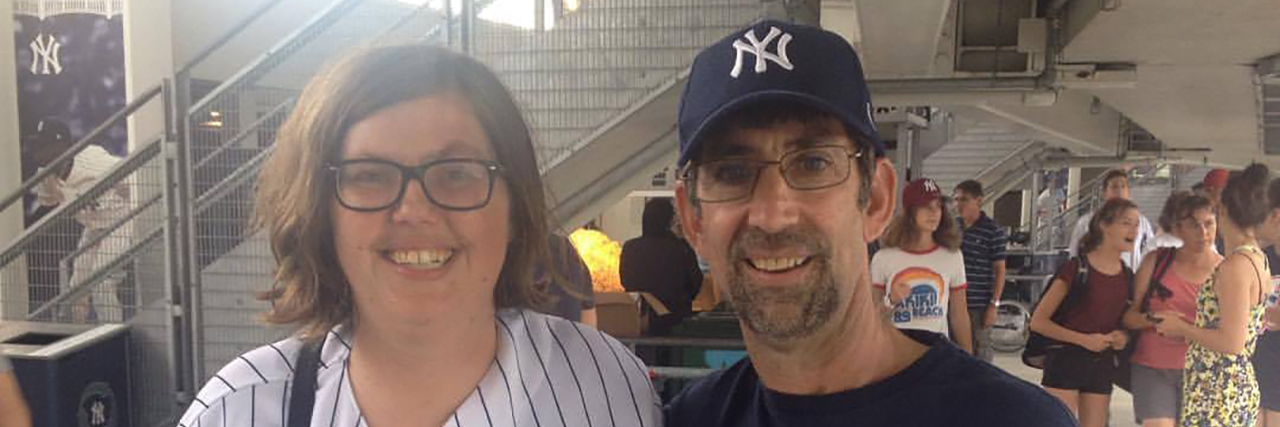My Path to Success With Nonverbal Learning Disorder
Growing up with nonverbal learning disorder (NVLD) can be very challenging. With the neurological deficiencies, it brings challenges that go beyond the classroom and impact all areas of a person’s life.
Students with nonverbal learning disorder often struggle with visual and spatial processing, understanding humor, change of routines, multitasking, are very anxious, and often very inflexible. They also tend to have trouble starting a conversation or talk too much, and also struggle with fine and gross motor skills. This can continue to adulthood. According to Understood.org one of the first challenges for a student with NVLD is difficulty with fine motor skills. Many children will spill things at meal time as the fine motor planning needed is too much. Other tasks such as using scissors can be disastrous.
In my experience, while these deficiencies were noticeable early, they became more noticeable around the beginning of second or third grade. For example, when your teacher posts artwork in the room or if you make a Mother’s Day project, you become confused about why your work is so messy compared to the others. Another example is when your parents tend to pick foods that are easier for you to eat. You may think “why can’t I have an orange for a snack” and then you remember something as easy as peeling an orange is often a difficult task.
During the middle school years, the challenges start to become very noticeable for students with nonverbal learning disorder as academics and social skills become more complex. The University of Michigan reports teachers, counselors, and coaches state that children with NVLD are inflexible and adapt poorly, both of which result from processing limitations. In my experience, I find this accurate. It is no surprise we can be labeled stubborn, disobedient, and argumentative at times as a simple change of routine is so difficult for us to handle. For example, when I was running track, I would get used to certain races and couldn’t adapt to the change when I was asked to run a different race. Fortunately, my assistant coach was a special education teacher and she knew the reason for my inflexibility. She would talk to me about it ahead of time so I was able to cope with it.
Academics become much harder, so anxiety increases. I feared being successful may be impossible. Completing assignments can be a real challenge due to having a slow processing speed. In my experience, many NVLD students want to do well, including myself, though it can be overwhelming. Without the right support, they struggle to overcome this obstacle. I was fortunate that I had a resource room teacher who knew the true me and my sincere desire to be successful, and thus she never allowed me to give up.
Many NVLD students have difficulty adapting to change. I believe this becomes a challenge for academics because each teacher does things differently. It can be extremely hard for us to understand this and adapt to it. This continued in college, and in my experience it is so important to go a school that has strong learning disability support programs, as the learning disability specialist can play a similar role as your resource room teacher did during your secondary and primary educational years. Colleges like Syracuse University, Dean College, Curry College, and Marist College have strong programs that provide tremendous support for students with disabilities and have the structure that can help NVLD students succeed.
Adulthood then comes and the challenges stated earlier may either become worse, or some you conquered earlier may return. Having constant support before entering adulthood often makes these challenges disappear or feel more manageable. According to ADDitude Magazine, one of the challenges for NVLD students is understanding when to keep information private and when it is appropriate to share it. The result of this decision can affect their relationships at work or at home. For example, when my uncle had prostate cancer I told too many people about it, and my father was a little disappointed in me as that wasn’t what my uncle wanted. In my heart, I thought I was doing the right thing as so many people cared about my uncle, but it was very mild and he just wanted to do the treatments without others becoming overly concerned. Controlling our impulsivity can be so hard as our emotions cause us to be either highly empathic or deeply angry. This can cause us to say too much at the wrong time.
Overall, the journey of overcoming NVLD is not a easy one. However, with determination, honesty, patience and a willingness to work with others I believe it is very possible. At times you may experience tremendously low self-esteem and want to give up, so it will be important to work closely with your support team. I can’t stress enough how important it is to begin services as soon as someone tells you it is necessary, as reaching developmental gains will be easier. With that being said, even with services, please don’t be too discouraged if the NVLD child begins to need more services in middle and high school, such as regular meetings with your school counselor or increase resource room periods. With open communication with your counselor and resource room teacher and a strong work ethic in the classroom, things should become much easier.
As soon as my parents spoke about my disability, my level of fatigue and anxiousness decreased, which made me more at ease. Before they spoke up, I was labeled as lazy and rude, which was very hurtful. With my counselor and resource room teacher’s support I was able to develop the skills to keep doing whatever I could to overcome the barriers I faced. What a wonderful feeling that was. Yes, the journey will be challenging at times, but with a “never give up” attitude I believe success will happen for you too.

